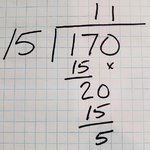Bucketsofjoy
Well-known member
We're definitely not huge fans of common core in our district, and I don't have enough personal experience with it to really make my own judgement, but here is a thought... CC math is attempting to teach kids to solve the problems more in their heads - not instead of the way we learned, but alongside it. So much of what we learned is just done on a calculator now, it doesn't exactly justify the years I spent "carrying the one" and whatnot. (yes, teacher lady. We do always have access to a calculator.) I would hope that the CC math thinking might complement technology more than how I learned. CC might be more about the learning process itself than just simply arriving at a destination. I don't agree with the common core idea at all, but there's a thought.
Oh, I forgot to mention that I made a 36 on the ACT in math, so my opinion is more valuable
Oh, I forgot to mention that I made a 36 on the ACT in math, so my opinion is more valuable












